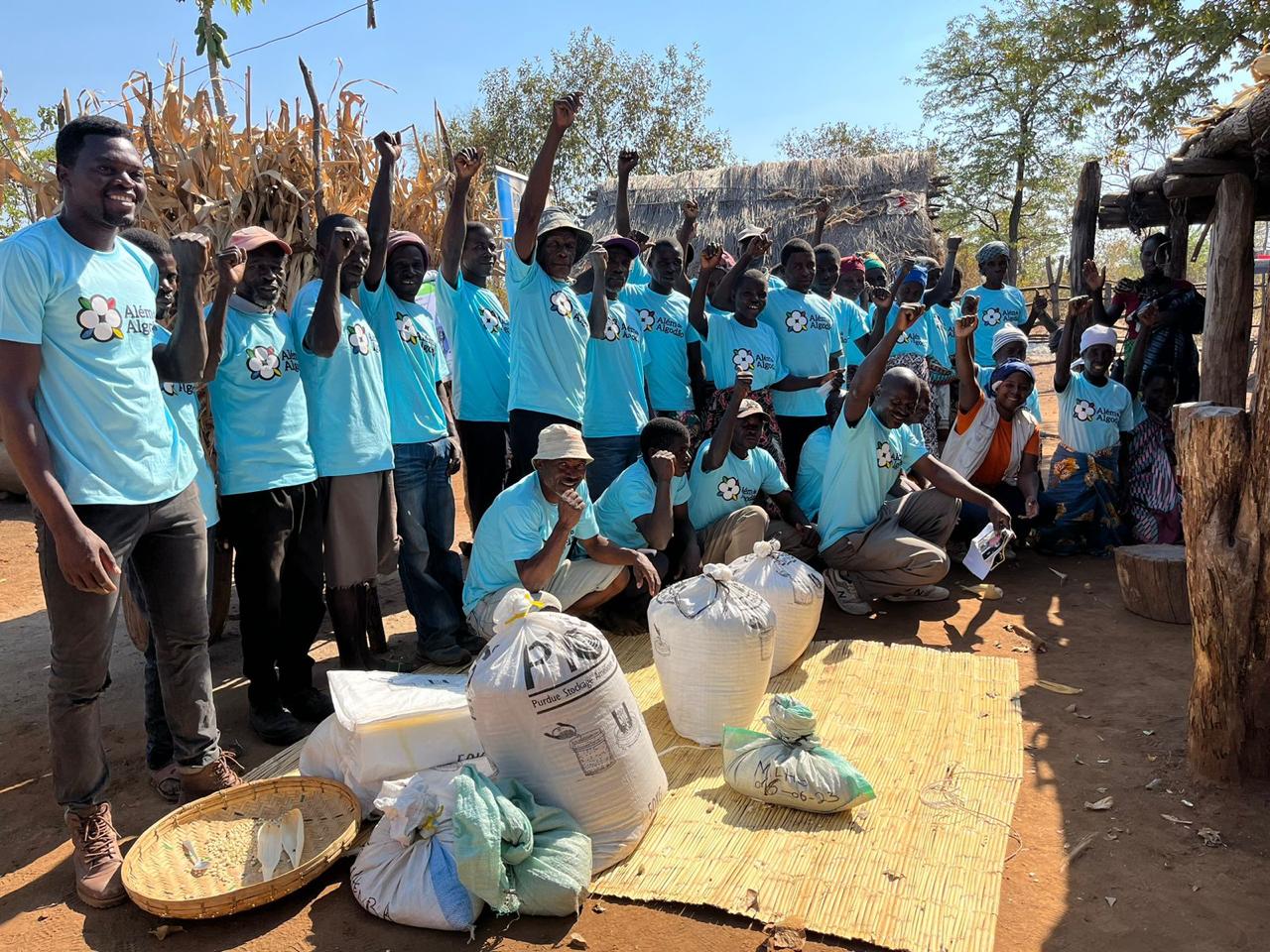
The closing ceremony of the Beyond Cotton Project in Mozambique, held on 7 October, brought together authorities and representatives from various institutions in Brazil and Mozambique in a hybrid ceremony, marking the conclusion of seven years of cooperation that strengthened family farming and promoted the sustainable use of cotton by-products.
The event, held in the province of Tete, was attended by representatives from the World Food Programme (WFP) in Mozambique, the Manica Higher Polytechnic Institute (ISPM), the Tete Provincial Directorate of Agriculture and Fisheries (DPAP), the Mozambique Cotton and Oilseeds Institute (IAOM), the District Economic Activities Services (SDAE) from different provinces, as well as the Federal University of Lavras (UFLA), the Brazilian Cooperation Agency (ABC) and the WFP Centre of Excellence against Hunger in Brazil.
Among the results reported by participants are stories of life transformation. The beneficiaries who gave their testimonials were: Sirene Zucuchera Ntonga, from Cahora Bassa (Tete); Filipe Edueti Chicumba, from Barue (Manica); and Luciano Antônio, from Guro (Manica).
In addition to the gains from training and improvements in production through the acquisition of machinery, the reports highlighted cases of families who, thanks to the profits from sales of their produce, were able to keep their children in school, pay for their university education, buy a cow to ensure a supply of milk and transport for their agricultural produce, and even several families who were able to build their own homes with the income obtained and the strengthening of the local economy.
According to Riffat Iqbal, from ABC, the initiative achieved significant results, both quantitatively and qualitatively. ‘More than 341 hectares were cultivated and about 60 tonnes of food were produced, notably okra, cabbage and lettuce. The actions also promoted the creation of productive backyards and strengthened the role of women farmers,’ he said.
Coordinator Albaneide Peixinho, from the WFP Centre of Excellence against Hunger in Brazil, highlighted that the success of the initiative is the result of joint work between Brazil and Mozambique. “Cooperation is an exchange of knowledge — we have learned from you as much as you have learned from us. It is gratifying to know that we have achieved concrete results, thanks to your willpower and collective effort to make this project work,” she said.
The project coordinators for WFP Mozambique, Marisete Araújo and Elvira Rendição, highlighted the long-standing partnership between the two countries. ‘Brazil has been supporting Mozambique through international cooperation for over 40 years. This project is yet another example of how this collaboration brings concrete and sustainable benefits to local communities,’ they said.
The Beyond Cotton Project is the result of cooperation between the Brazilian government, through ABC, the WFP Centre of Excellence against Hunger in Brazil, and UFLA, in partnership with the WFP, the Mozambican government, represented by IAOM, and the support of other institutions in the country, such as ISPM and SDAEs. The initiative promoted creative and sustainable solutions for the use of cotton and the strengthening of the production chain, contributing to the improvement of food, income, and quality of life for rural families.




